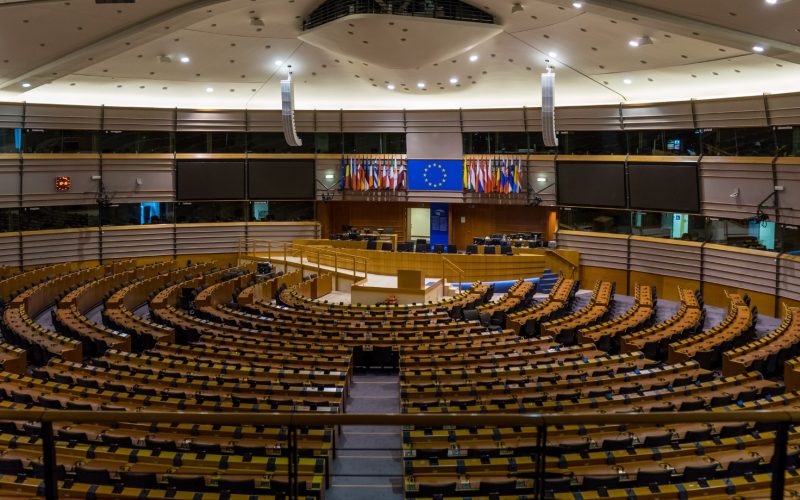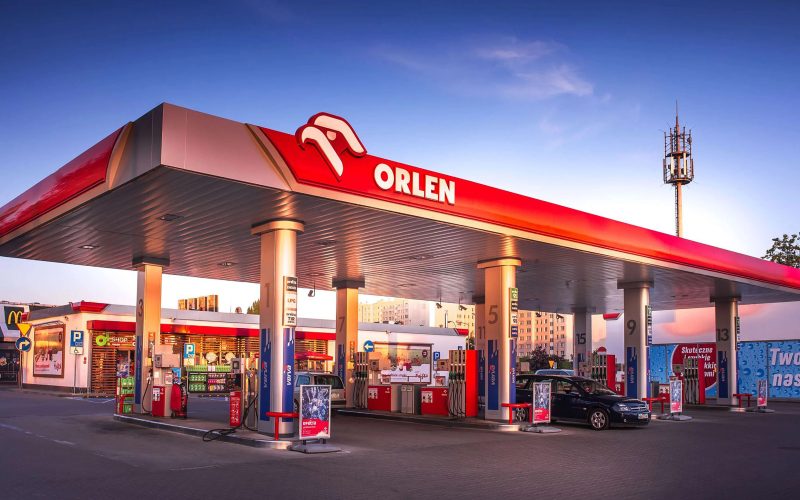The role of bioenergy in the country’s reconstruction: UABIO at the conference on renewable energy
On May 22, the Techno Loft business center hosted an offline event that brought together key players in Ukraine’s renewable energy sector to discuss the challenges and opportunities of the green transition. The conference was organized by the We Build Ukraine think tank in partnership with the Ukraine Facility Platform and covered three key areas: solar energy, wind energy, and biofuels.
The focus was on creating transparent conditions for investors, localization of production, the role of state policy and integration into the European energy market. UABIO was represented at the event by Chairman of the Board Georgii Geletukha. He took part in the third module “Biofuels — Energy from Ukrainian Resources”.

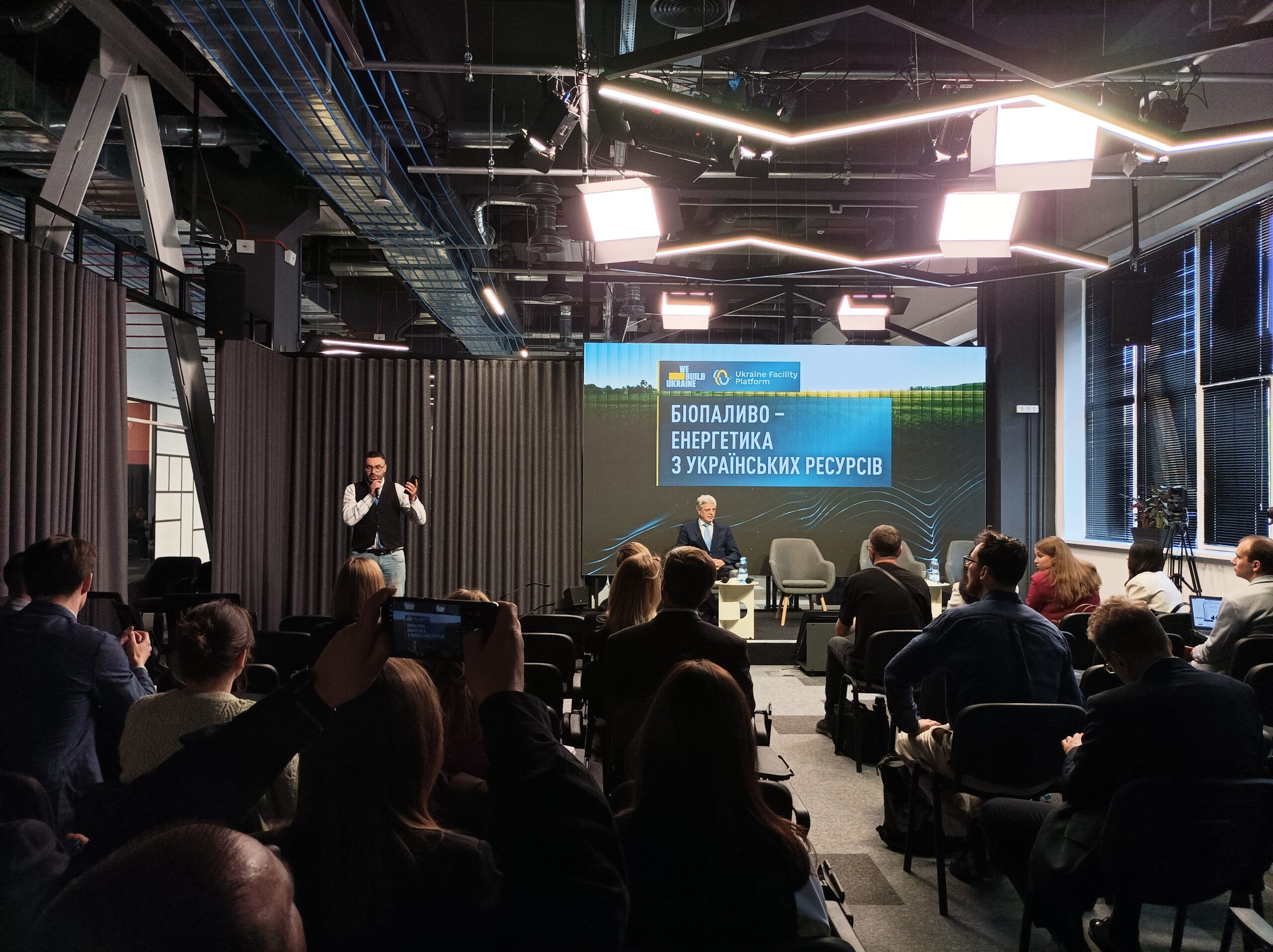
Speakers at the panel on biofuels and bioenergy included:
- Georgii Geletukha, Chairman of the Board of UABIO.
- Oleksandr Vizir, UAFP Energy and Climate Sector Coordinator.
- Adomas Audickas, Deputy CEO of MHP Group responsible for bioenergy development;
- Serhii Kravchuk, CEO of Gals Agro agricultural holding.
- Vitaliy Golovnya, First Deputy Chairman of the Board of Epicenter K.
The panel was moderated by Taras Mykolaenko, Executive Director of the Ukrainian Association of Bioethanol Producers.
Full video of the event
Speech of the panel speakers on biofuels and bioenergy
Georgii Geletukha: “In 2020, bioenergy replaced 5.2 billion cubic meters of gas. This is already about 17% of the natural gas consumed. We could continue this trend further. Now we see a problem when gas storage facilities are almost empty. The shortage of gas is 4 to 6 billion cubic meters, which will be expensive to import”.
“Among the problems is subsidized gas for households. As long as natural gas is the cheapest, no one will replace it with a renewable analog. In addition, biomass boiler houses, biomass CHP plants, biogas plants are taxed on CO2 — this is another problem. If this is the attitude towards the sector, do not expect any breakthroughs here. Finally, the system needs to be changed from a monopoly to a competitive one. The state should protect such suppliers who want to connect to the grid and sell heat cheaper”.
The expert also noted that the most positive news is currently in biomethane. At present, four biomethane plants are already operating in Ukraine.
Download presentation by Georgii Geletukha (in Ukrainian)
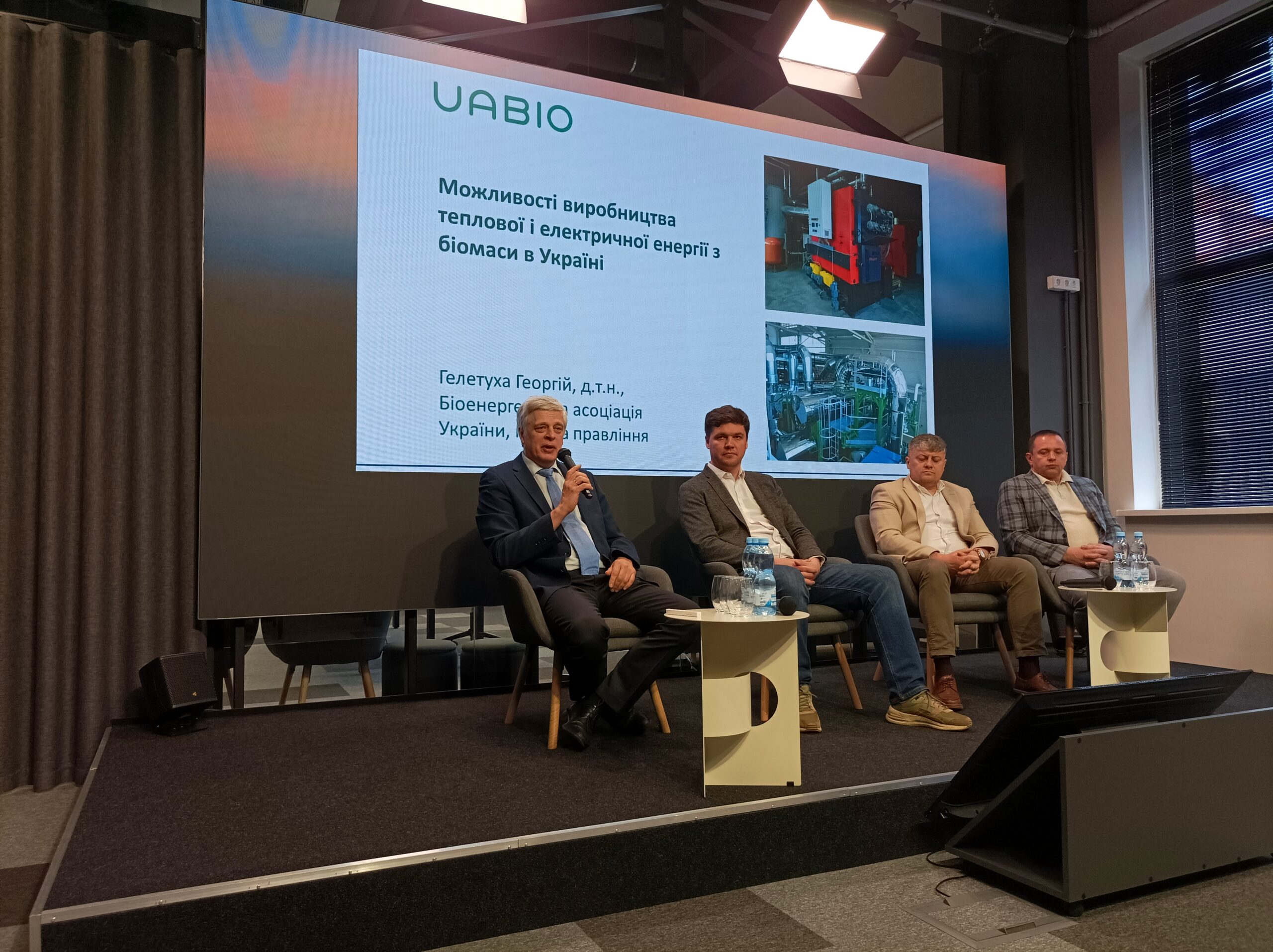
Oleksandr Vizir: “In our opinion, we need to create an energy mix with a focus on communities. The key bet is on renewable energy sources: wind, biomass, solar, and storage. This way, we will increase green generation, additional income for the community, and increase the resilience of the power system. In addition, we will be able to attract investments from international financial institutions”.
The expert is convinced that energy development in Ukraine is still going on in non-market conditions: “When we want to switch to electricity, they tell us that we should stay with natural gas because it is subsidized. For development, we need to create absolutely market-based systems”.
Adomas Audickas: “Ukraine has a great potential for biofuel production and green energy in general. However, I see certain risks in investing in solar energy. As for bioenergy, if a domestic ETS is introduced in the future, it will definitely help to build biogas capacities and investments in the sector”.
MHP’s representative added that Ukraine has good prospects for the development of biofuels for transportation, and that in Europe, the biofuel market initially developed similarly to Ukraine.
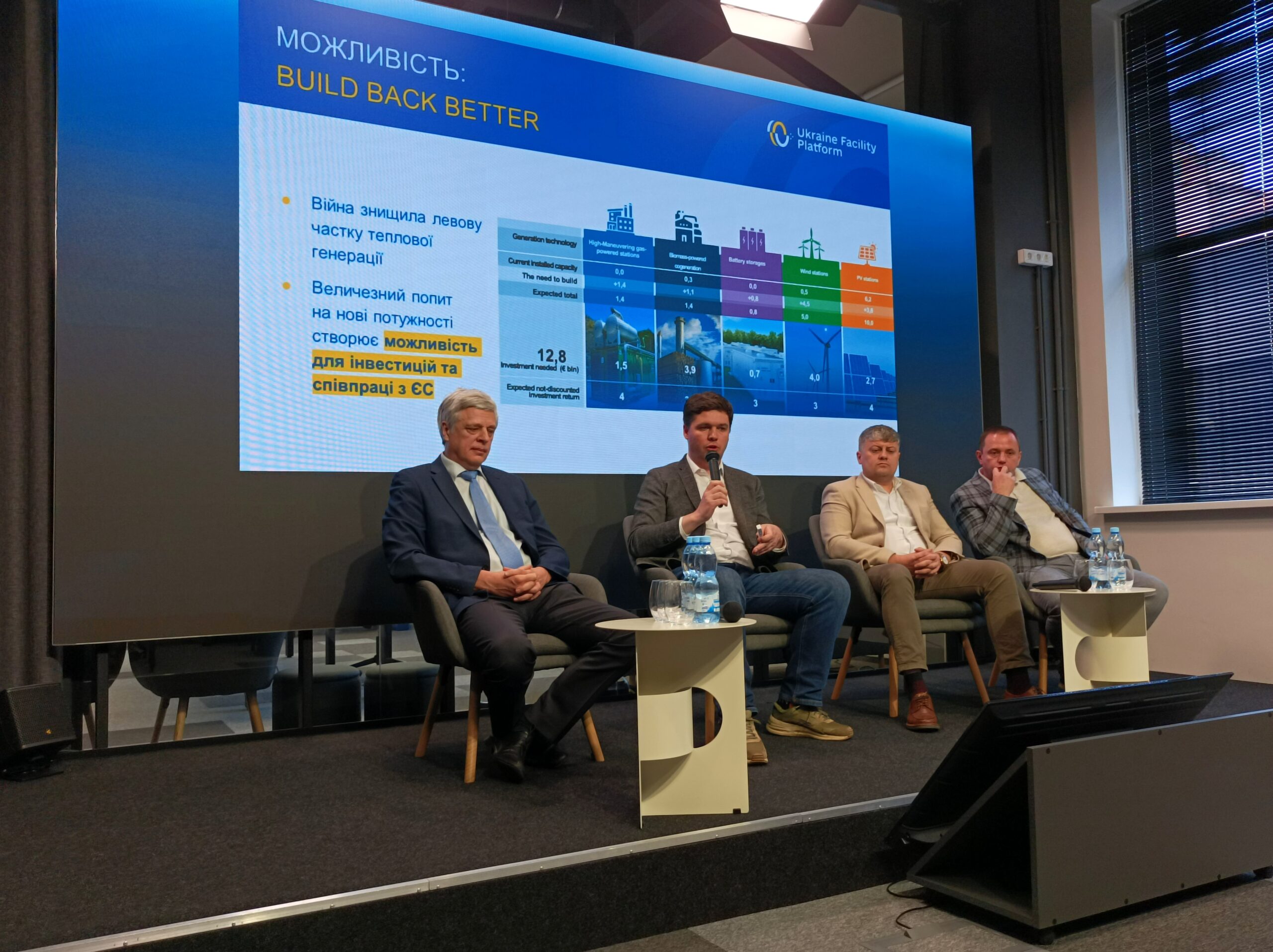

Serhii Kravchuk: “The biomethane sector is so new that it is practically a ‘blue ocean’ for business. This niche is very much unoccupied, so we need to hurry to take our place. Every country has already said that it will produce a certain amount of biomethane by 2030-2035, and we need to join this trend so that we don’t fall behind again. However, we need to create some more conditions for the industry to develop”.
“We believe that gas and electricity tariffs should be differentiated. This will provide fantastic savings in both gas and electricity use. Today, we are developing the biomethane sector with large companies, but it would be better to follow the European experience: small biomethane plants in each region”.
The CEO of Gals Agro is convinced that a biomethane plant should produce both methane and electricity: “This is our distributed generation and the country’s energy security.”
Vitaliy Golovnya: “We are building a bioenergy hub to produce bioethanol and a cogeneration plant using sunflower husks. As for the sugar plant, we can use molasses for bioethanol production. From the bioethanol plant, we can collect bio-CO2 and use it to produce other products”.
At the end of the event, Taras Mykolaenko also made a short presentation. He spoke about the production of bioethanol in Ukraine and the export of its products abroad.
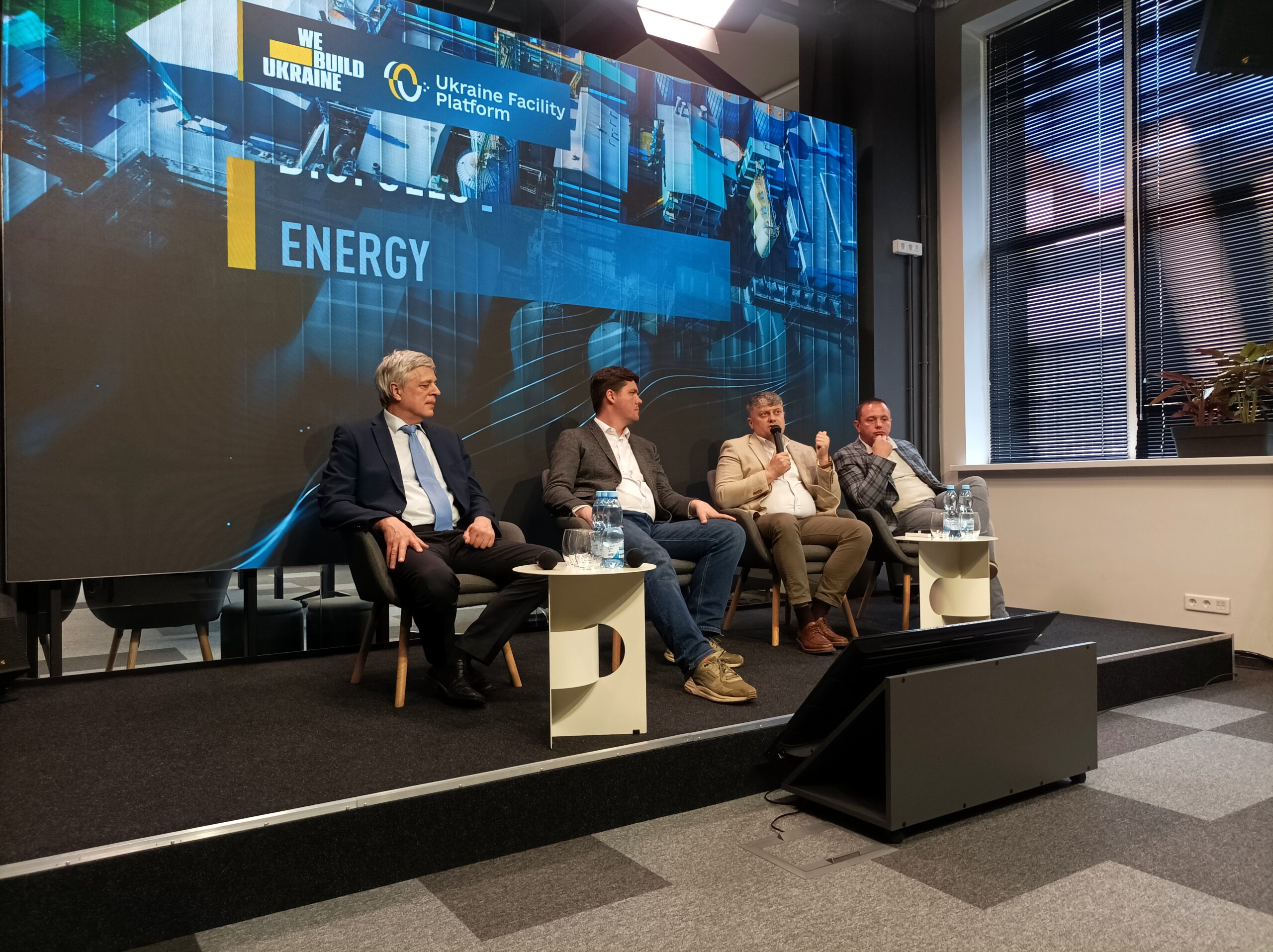
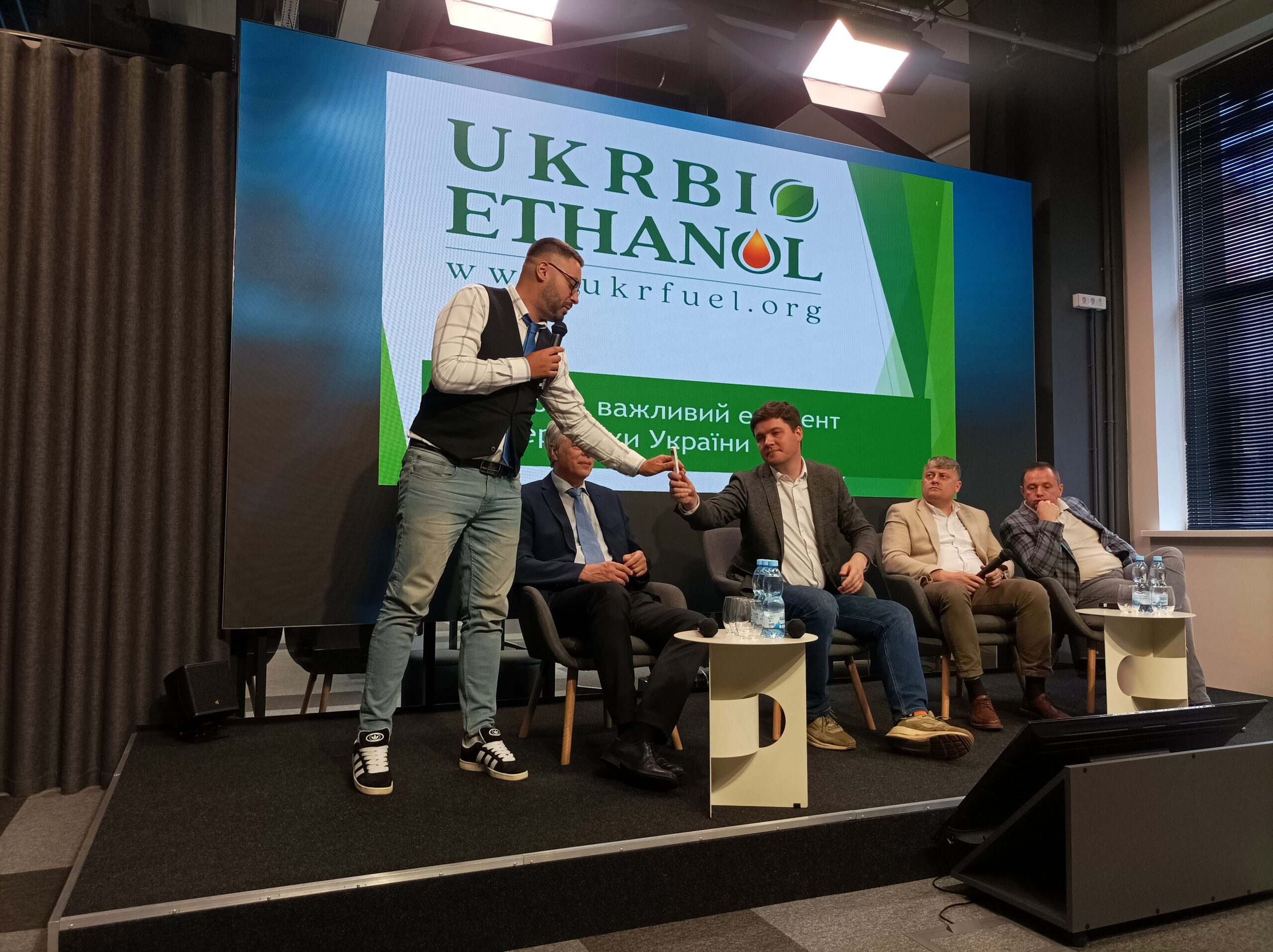
The Economic Growth Strategy of Ukraine, developed by BCG in cooperation with the We Build Ukraine think tank, identifies green energy as one of the eight key sectors of the economy whose reforms will lead to strong GDP growth over the next decade. The significant destruction of traditional energy capacities opens up new opportunities for Ukraine to develop green energy, which can be a solution to strengthen the country’s energy sustainability.
